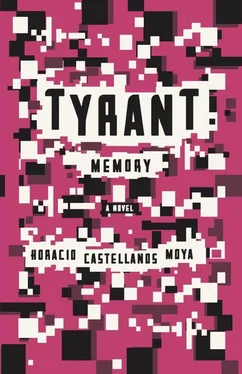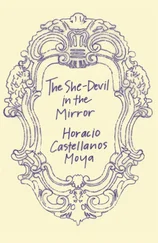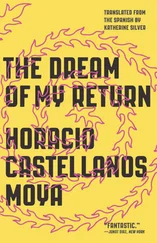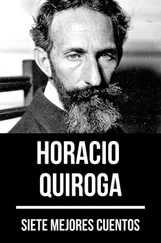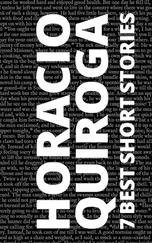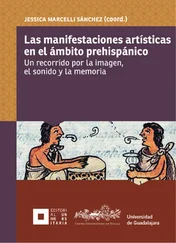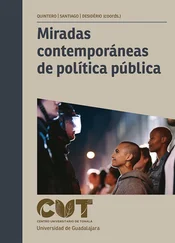Horacio Castellanos Moya - Tyrant Memory
Здесь есть возможность читать онлайн «Horacio Castellanos Moya - Tyrant Memory» весь текст электронной книги совершенно бесплатно (целиком полную версию без сокращений). В некоторых случаях можно слушать аудио, скачать через торрент в формате fb2 и присутствует краткое содержание. Год выпуска: 2011, Издательство: New Directions, Жанр: Современная проза, на английском языке. Описание произведения, (предисловие) а так же отзывы посетителей доступны на портале библиотеки ЛибКат.
- Название:Tyrant Memory
- Автор:
- Издательство:New Directions
- Жанр:
- Год:2011
- ISBN:нет данных
- Рейтинг книги:4 / 5. Голосов: 1
-
Избранное:Добавить в избранное
- Отзывы:
-
Ваша оценка:
- 80
- 1
- 2
- 3
- 4
- 5
Tyrant Memory: краткое содержание, описание и аннотация
Предлагаем к чтению аннотацию, описание, краткое содержание или предисловие (зависит от того, что написал сам автор книги «Tyrant Memory»). Если вы не нашли необходимую информацию о книге — напишите в комментариях, мы постараемся отыскать её.
takes place during the month between the coup and the strike. Its protagonist, Haydée Aragon, is a well-off woman, whose husband is a political prisoner and whose son, Clemente, after prematurely announcing the dictator’s death over national radio during the failed coup, is forced to flee when the very much alive Warlock starts to ruthlessly hunt down his enemies. The novel moves between Haydée’s political awakening in diary entries and Clemente’s frantic and often hysterically comic efforts to escape capture.
— sharp, grotesque, moving, and often hilariously funny — is an unforgettable incarnation of a country’s history in the destiny of one family.
Tyrant Memory — читать онлайн бесплатно полную книгу (весь текст) целиком
Ниже представлен текст книги, разбитый по страницам. Система сохранения места последней прочитанной страницы, позволяет с удобством читать онлайн бесплатно книгу «Tyrant Memory», без необходимости каждый раз заново искать на чём Вы остановились. Поставьте закладку, и сможете в любой момент перейти на страницу, на которой закончили чтение.
Интервал:
Закладка:
I returned to my parents’ house believing that the march tomorrow would be much larger than what I had thought and that of all of us, perhaps only Doña Chayito is aware of this. My belief turned into a certainty after I conversed with Mingo this afternoon: he told me all the journalists know about the protest march and if the journalists know, so do the general’s secret police; he told me he wouldn’t be surprised if by morning El Calvario Church and the entire downtown area is occupied by National Guard troops. Mingo was quite uneasy. And for good reason: Irmita is doing worse than I thought: she’s having difficulty breathing, she has terrible back pain, and she’s very pale. She does not have tuberculosis, the doctors already told her, though they still haven’t been able to give her a diagnosis. God willing it isn’t cancer.
I admitted to my parents that I intend to participate in the march. Mother is very worried, she tried to dissuade me, and she asked me to prohibit Betito from joining the protests; Father warned me to be careful, he told me about continued rumors of unrest within the army and about the Nazi warlock getting crazier than ever. I promised them I would do everything possible to convince Betito to stay home, but I also told them they must understand how difficult it is to reign in the enthusiasm of a fifteen-year-old boy whose father is in jail and whose older brother is a fugitive, fleeing from a death sentence. And that’s exactly what happened at dinner when I told Betito that it would be best for him to remain at home, not to take any risks — he responded very decisively that he would not let me go alone, he would stay by my side; I did not feel I had the moral authority to order him to do anything else.
A little while ago, after cleaning the stove and turning off the kitchen lights, while we were listening to the radio theater, María Elena insisted she would also accompany me to church and on the march. I made it clear to her that it was not her duty, and that it might be dangerous, but she said she was doing it out of her own free will, because it simply isn’t right that Pericles is in jail and that they want to execute Clemen.
***
A few minutes ago, just after I put away this notebook, Father called to tell me that this afternoon, under the cloak of secrecy, the war council has been reconvened and assigned the task of trying another group of coup participants; he couldn’t give me names, but he said they were military officers captured since the previous war council. “There will most likely be a new round of executions tomorrow morning,” Father said with rage and sorrow. I asked him, my heart in my throat, if Clemen might be among those captured. He told me he is certain he is not, because he was told they were all military officers, and Tonito Rodríguez would be their defense lawyer. I am appalled, my nerves are frayed. How can one sleep after hearing such news.? And what will happen at the march if there are new executions?
Sunday April 23
What a day, dear God! I barely slept a wink all night. I turned on the radio at five o’clock in the morning, knowing there would be a news bulletin if there were executions even though it is Sunday. But at seven, there was still nothing. Then I received a call from Father telling me the war council had adjourned an hour earlier and would reconvene that night; Mingo, Doña Chayito, Angelita, and other friends also called because the news had spread like wildfire. Doña Chayito told me that Captain Gavidia, Merceditas’s husband, is among the new officers on trial and will surely be sentenced to death. I just managed to cry out “God no!” then felt enormous pressure in my chest. I asked her if we would still hold the march under these conditions; she answered, of course we would.
Moments later I received my Sunday call from Pati; I tried to speak calmly, I didn’t want her to notice how anxious I was, I avoided mentioning the war council or Chente’s arrest, for she is very fond of him. My daughter knows me too well, she is too perceptive, and I didn’t want to worry her because of her pregnancy. In spite of my best efforts, at one point she said I sounded strange, then insisted several times that I was hiding something important from her. I explained that I was suffering from exhaustion and worry precisely because nothing was happening, I couldn’t see her father and had no news of Clemen. After hanging up, I crossed myself and asked God to forgive me for having lied.
During breakfast, Betito was ranting and raving against the general, in that same show-offy way Clemen has that so displeases Pericles. I asked him to tone it down, the walls have ears. At that moment we heard knocks on the door: it was Raúl and Rosita. They wanted to know if the march was happening in spite of the threats of new executions; I told them yes, it was. Rosita was very nervous. We agreed that each family group would go to church on its own so as not to arouse suspicions in the policemen watching our block.
Father sent Don Leo to drive us to church. I was dressed in strict mourning, even wearing a veil, and I had a marker and a piece of cardboard in my handbag, as Doña Chayito suggested; María Elena was also dressed in black, and Betito was wearing Pericles’s tie of the same color. We didn’t speak the whole way there; the streets were almost empty. But many groups of people were standing in front of the church, many more than usual. Don Leo told me he would park nearby and wait for us, for Father had given him orders to remain at my disposal the whole time and then to drive us home. Carmela, Chelón, and Mingo arrived at that moment. I saw Raúl, Rosita, and the other doctors standing near the door; Doña Consuelo, accompanied by her daughter, came to greet me. Mingo gestured to me, calling my attention to the secret policemen hanging around nearby. I looked for Doña Chayito among the various groups, but couldn’t find her. We were all whispering angrily about the new trials. Soon the bells rang and we entered the church. I saw that a lot of people were already inside. Doña Chayito appeared by my side; while she was greeting me, she placed a small piece of paper in my hand. Betito went off with his friend; María Elena sat at a pew in the rear. I sat between Carmela and Mingo. The priest began saying Mass. The first time we kneeled I carefully unfolded the piece of paper and read it; Mingo was watching me out of the corner of his eye. A few moments later I stood up and went to the confessional; I wasn’t burdened by any particular sin, but I felt anxious and thought it would calm me down to confess. While I was waiting my turn in line, the tension in the air was palpable: people were glancing at one another with looks of complicity, others were gesturing to each other, and many were whispering, not listening to what the priest was saying, as if everyone was simply waiting for Mass to be over and for the march to begin. I confessed that I had lied to my daughter to avoid worrying her, because of her condition: the priest sent me off quickly with one Apostles Creed as penitence. I returned to my place at the pew, but as I was settling in between Carmela and Mingo, I thought I espied, in the bright light pouring in through the church doors, Don Leo entering the church. I wondered, and worried: Don Leo doesn’t like priests and never attends Mass. The priest was reading the part of the gospels with the parable of the good Samaritan; then he devoted his homily to the theme of forgiveness. Just as I was joining the line to receive communion, Don Leo approached and whispered in my ear that a squad of National Guard soldiers was stationed outside the church, and it would be best for us to leave as soon as Mass was over. My knees buckled with fear. I continued to the altar, contrite, praying to God that nothing would happen, then I looked up to see where Doña Chayito and Betito were, but didn’t see them. I heard some noise behind me, near the entryway, but just at that moment the priest was holding out the host to me. Returning to my pew I could feel the agitation, the looks of fear and anger on everybody’s faces, and the young people going to and from the front doors. I kneeled to pray for a few minutes. Mingo and Chelón said it seems the general has stationed a tank half a block away on the street the march would go down. “I told you,” Mingo reminded me, when I came back to sit down, “the warlock is always the first to know.” The priest concluded the Mass. Most people got up and began to move toward the door. I remained seated, took out the cardboard and the pen, and wrote “WE DEMAND A GENERAL AMNESTY!” exactly as Doña Chayito’s little piece of paper had instructed. Carmela was watching me as I drew the large letters. Then I joined the others on the way out, the sign still folded in half. I saw Merceditas, walking with Doña Chayito, the poor girl looked completely distraught. A nervous crowd had gathered in the atrium. The soldiers were positioned on the sidewalk across the street, and I caught a glimpse of the tank about fifty yards away, in the middle of the street, its cannon pointed right at us. I was scared. The university students began to congregate in the street, to shout slogans demanding the release of the prisoners and against the dictatorship, and to shout insults at the soldiers. I saw Betito on one of the steps along with Henry, El Flaco, Chepito, and other classmates. Doña Chayito strode out into the street, her sign held high, defiant, face-to-face with the soldiers; several of us followed her. My legs were trembling as I walked down the stairs. At that very instant, the commanding officer ordered them to draw their guns, and they fired into the air several times; the soldiers then aimed their weapons at us, and a horrific blast was fired from the tank. There was a stampede in both directions. I dropped my placard and felt like I was going to faint, but then somebody took me by the arm. “Hurry!” Don Leo said as he led me quickly down a side street. “What about Betito?” I managed to ask, but Don Leo was almost carrying me because I was on the verge of shock. María Elena was running behind us. “Where’s Betito?” I asked again, terrified, when we got into the car. “He took off with his friends in the other direction. He’s okay,” Don Leo said before driving off at full speed. The further we got from the area the more I worried about what might have happened to Doña Chayito, Merceditas, Carmela, Chelón, Mingo, and so many others. “Holy Jesus, God willing they haven’t hurt or arrested anybody!” I cried out, reduced to a bundle of nerves. “The shots were fired in the air, to frighten and disperse the crowd,” Don Leo said, then he asked me where I wanted him to take us. I asked him to go by the house to drop off María Elena, so she’d be there in case Betito showed up or called, and then he should take me straight to my parents so I could tell them what had happened. But they’d already heard and were waiting for us along with their neighbors out in the street: the news had reached them by telephone a few minutes after it happened, and Mother assured us she even heard the shots. The whole city was in an uproar. I fell onto the sofa in the living room, overcome by distress: Juanita asked me if I wanted some tea. Mother was anxious about what might have happened to Betito, though Don Leo had already told her what he had seen. The telephone was ringing off the hook; I asked them to keep their calls brief in case Betito tried to call. Father was giving instructions to Don Leo to drive around the area looking for his group when the call came. Thank God, they got away in Henry’s car, Betito said; they were safe and sound at Flaco’s house. I felt enormously relieved. I tried several times to call Doña Chayito, but her line was busy; finally, her husband answered, he said she was fine, but she wasn’t home. I gave thanks to our Lord; I told myself that woman is made of steel, surely she was already organizing other forms of protest. Suddenly I had a terrible sensation, like an emptiness in my stomach and total exhaustion; I went to one of the bedrooms, curled up in a fetal position on the bed, and began to sob, quietly, so nobody in the living room would hear me, until I fell asleep.
Читать дальшеИнтервал:
Закладка:
Похожие книги на «Tyrant Memory»
Представляем Вашему вниманию похожие книги на «Tyrant Memory» списком для выбора. Мы отобрали схожую по названию и смыслу литературу в надежде предоставить читателям больше вариантов отыскать новые, интересные, ещё непрочитанные произведения.
Обсуждение, отзывы о книге «Tyrant Memory» и просто собственные мнения читателей. Оставьте ваши комментарии, напишите, что Вы думаете о произведении, его смысле или главных героях. Укажите что конкретно понравилось, а что нет, и почему Вы так считаете.
